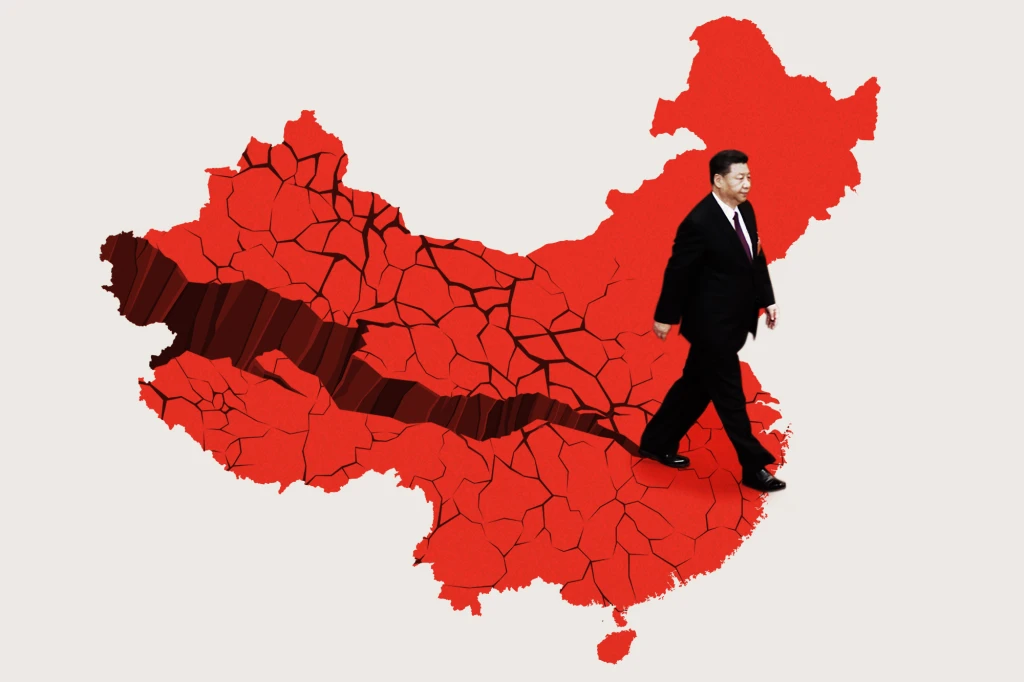Today, China is one of the world’s leading economic giants. China, with its cultural exceptionalism rhetoric, does not embrace the Western political model. Its political model reflects the degree to which the state dominates society, politics, and the economy. With neo-socialism and a distinct political culture, China has achieved unification throughout the majority of its territory. In terms of its rise, its political system has also proven to be pragmatic and efficient. China’s phenomenal rise raises a series of fundamental questions regarding the country’s political structure in the future. Can China rise if its political system is not reformed? Is China trying to replicate Western political norms, or is it forging its own path?
- Western Discourse and the Chinese Political Model:
Notably, the China model varies from traditional socialism in that it combines democracy with Chinese characteristics. In China, political discourse is still based on Marxist-Leninist ideals, as well as adopting Confucianist views rather than political individualism. The West is scathingly critical of the China model, as China’s rise appears to be ‘threatening Western claims of universalism.’ Rather than becoming more liberal, China appears to be an authoritarian regime seeking greater political and economic success. On the political level, China has maintained a one-party dictatorship, with severely restricted freedom of expression and association, while on the economic level, there is a free market system. In addition, China aspires to aggressively shape global governance in order to advance its priorities and ideals.
In addition, many scholars have questioned China’s resolve to preserve its own political culture through strengthened state apparatus. In a similar vein, Western discourse implies that reforming the political system conforms to western values and norms, which China categorically opposes. In China, democratization entails the dismantling of the one-party system and the emergence of various political rivals. It can be argued that China’s growth is not conditioned by ‘democratization’ because the Chinese Communist Party (CCP) is the sole governing body and general public concerns rarely affect decision-making. China continues to play a significant role in global development despite the absence of western liberal values.
Read More: Russia – China Unprecedented Friendship: the dawn of a New Cold War?
- Strengthening State Apparatus:
Furthermore, the majority of top officials have highlighted the limitations of China’s political reforms. However, the Chinese administration, under Xi Jinping, sparked expectations for political reforms when he pushed for the full implementation of the state constitution in December 2012. Later on, he stresses the importance of the CCP policing itself rather than permitting an outside entity to do so. These evident contradictions have cast doubt on Xi’s approach toward political reforms like those of previous leaders. In order to rebuild a centralized system, the Chinese political system under President Xi seeks both a monolithic CCP and competent administration. It is concerned about maintaining political stability as well as controlling China. As a result, the Xi administration has accomplished comprehensive institutional reforms for the CCP and the state.
- Promoting multipolar Global Governance:
By leveraging the party’s dynamic institutional framework, President Xi also constitutes a distinct vision for China from Mao Zedong and Deng Xiaoping. His governance style is based on top-down decision-making. He aims to minimize financial risk, reduce pollution, and alleviate poverty. Additionally, President Xi Jinping has urged China to take the lead in reforming the global governance model by establishing alternative institutions such as the Belt and Road Initiative (BRI) and the Asian Infrastructure Investment Bank (AIIB) and pushing the concept of cyber sovereignty. These measures reflect China’s priorities and extensive plan to strengthen political, financial, and security relationships with other countries.
- Conclusion:
Nevertheless, China’s rise has abuzz the world that it is a force to be reckoned with. Likewise, China’s rapid rise calls into question the mainstream notion that Western cultural, political, and economic norms are required for progress and development. China’s distinct political model has shaped its relations with the rest of the world. Its political system seems at odds with Western democratic norms. Under Xi Jinping, China’s political structure is ranking-stratified. So far, political reforms done by the Xi administration have strengthened rather than modify the system.
All things considered, China’s rise without reforming its authoritarian political culture may seem unprecedented. However, as China’s political reform process nears a crossroads, its rise appears to have been fueled by exaggerated rhetoric of success. Despite rapid economic progress, China faces a multitude of challenges, including environmental degradation, pollution, a wide disparity between rich and poor, societal inequality, and growing assertiveness on territorial issues. Unless these concerns are addressed, forecasting the arrival of the Chinese century and the global success of the Chinese model with its unique political features becomes difficult.

About Author:
Warda Ghafoor is an undergraduate student of International Relations at National Defence University, Islamabad. Her scholarly research interest includes areas pertaining to geopolitical shifts, foreign policy analysis, international institutions, the environment, and the diplomatic correspondence of countries across the world.
- Global Defense Insighthttps://defensetalks.com/author/umair/
- Global Defense Insighthttps://defensetalks.com/author/umair/
- Global Defense Insighthttps://defensetalks.com/author/umair/
- Global Defense Insighthttps://defensetalks.com/author/umair/













